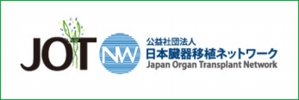Ventricular assist device
What is a ventricular assist device
A ventricular assist device is an instrument that assists the pumping function of a weakened heart.
With this device, patients with serious heart failure who are not capable of getting out of bed and suffer from pain even while lying down may be able to walk back to their home.
There are two types of ventricular assist device, “extracorporeal” and “implantable”.
In the case of the implantable device, the pump is inserted inside the body and the patient is therefore able to leave the hospital and stay at his/her own home. However, this type of ventricular assist device is not applicable for everyone. In Japan, it is only available for patients who are approved as being suitable for a transplant.
Although the extracorporeal device does not require suitability approval, patients cannot be released from the hospital with the device and the risk of infection is higher than with the implantable device.
Purpose of the ventricular assist device
A ventricular assist device is basically used for three purposes.
- 1. Bridge to transplantation: BTT
- Bridge treatment by providing mechanical assistance to patients who would not survive with conventional medical treatment until receiving a heart transplant.
- 2.Bridge to recover: BTR
- Bridge treatment by providing mechanical assistance to patients while they receive conventional medical treatment. When the heart function recovers, the device is removed.
- 3.Destination therapy: DT
- Patients for whom the above 1 and 2 do not apply and who continue to receive mechanical assistance for an indefinite period of time.
As of August, 2014, there were no approved cases of DT in Japan.
In order to receive treatment with an implantable device, patients must be evaluated regarding their suitability for
a heart transplant.
Complications using the ventricular assist device
Although treatment with a ventricular assist device is improving, characteristic complications remain a concern.
Occasionally, patients are excluded from being judged as suitable for heart transplantation because of these complications. These complications may also cause a fatal outcome.
1. Infectious diseases
2. Embolism (stroke or embolism in other organs)
3. Bleeding
4. Device malfunction
Contact us ; jungeka#med.hokudai.ac.jp ( Please replace #with@ )
Heart transplantation
What is heart transplantation?
Heart transplantation is a medical treatment based on good-will from a donor using his/her own heart.
In Japan, the number of available donor hearts is extremely limited. We need to use this limited resource efficiently
and with great care.
Therefore, after evaluating the patient’s situation, his/her suitability for heart transplantation is discussed in two committee meetings based on the criteria described below: 1) Committee for the evaluation of suitability by the hospital and 2) Committee for the evaluation of suitability by the Japanese Circulation Society.
- There is no effective alternative treatment other than heart transplantation.
- The life expectancy of the patient is short without heart transplantation.
- The patient can tolerate routine(or emergency) tests and immunosuppressive therapy both physically and mentally.
- The patient understands his/her condition requiring heart transplantation and is willing to have the surgery.
- The patient has his/her family’s understanding and support regarding heart transplantation.
Patients who are determined as being suitable for heart transplantation are registered in the “Japan heart transplantation network” and must wait until a donor becomes available.
*As of today, the waiting period in Japan is more than 1,000 days.

To patients who are eligible for heart transplantation
Patients eligible for heart transplantation consist of those with serious heart diseases who cannot be cured or for whom life cannot be prolonged using currently available treatments as follows:
- Dilated cardiomyopathy or the dilated phase of hypertrophic cardiomyopathy
- Ischemic myocardial disease
- Others (heart diseases approved by the Heart Transplant Suitability Discussion Committee of the Japan Circulation Society and the Japanese Society of Pediatric Cardiology and Cardiac Surgery
*Patients also must fulfill the following criteria.
1) The patient is in the terminal stage of heart failure and one of the following applies:
- Patient with heart failure and requires long-term or repeated hospitalization.
- Patient with heart failure whose condition cannot improve from HYHA level 3 or 4 using conventional treatment, including β-blockers and ACE inhibitors.
- Patient with fatal arrhythmia that cannot be treated by any existing treatment methods.
2) The patient is younger than 60 years of age.
3) The patient has his/her family’s understanding and support regarding heart transplantation.
Patients excluded as candidates for heart transplantation
1)
Patients who fall under the following criteria are not eligible for heart transplantation:
1)Absolute exclusion criteria
- Irreversible impairment of renal and hepatic function
- Active infectious disease (including Cytomegalovirus infection)
- Pulmonary hypertension (pulmonary vascular resistance is more than 6 Wood units even with vasodilator intervention)
- Pulmonary infarction within the past 6 months
- Drug dependence (including alcoholic myocardial disease)
- Malignant tumor
- HIV (Human Immunodeficiency Virus) antibody positive
2)Relative exclusion criteria
- Renal dysfunction or hepatic dysfunction
- Active peptic ulcer
- Insulin dependent diabetes mellitus
- Psychoneurosis (when the patient fails to overcome anxiety regarding his/her disease and disease status despite making efforts to do so, the patient may be excluded)
- Medical history of pulmonary infarction and pulmonary vascular obstructive disease
- Chronic diseases such as collagen disease
Contact us ; jungeka@med.hokudai.ac.jp


